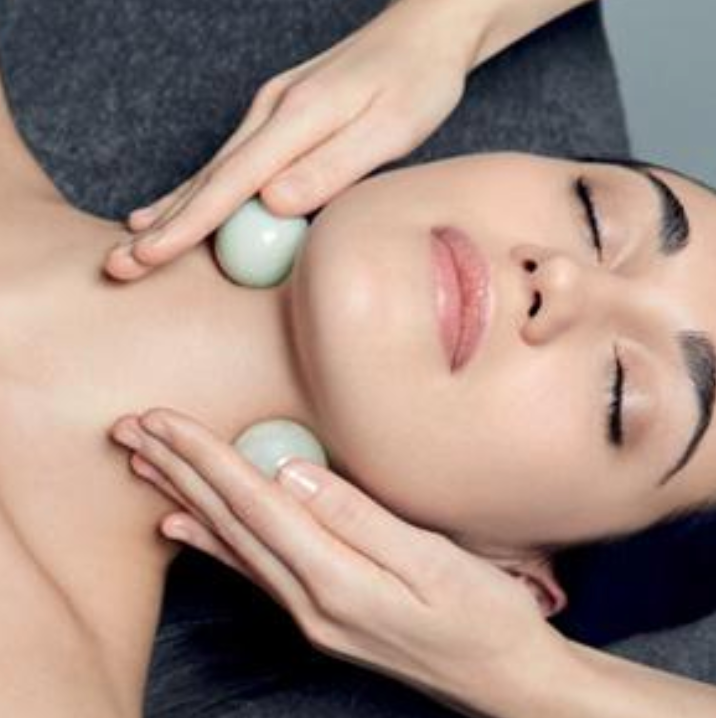Is your skin as healthy as it can be? We’ve rounded up everything you need to know about skin health and why it’s such a big deal. Kick your daily skincare routine into high gear with these anti-aging, breakout-busting tips for how to get healthy skin in no time!
What is skin health and why does it matter?
Your skin is your body’s largest organ, the protective covering of the body. Your skin prevents germs and bacteria from entering your body and damaging your other organs. Your skinsupports the life of everything else in your body as well as playing a role in maintaining your immune system. It also helps to regulate your body temperature through the sweat glands. When the body becomes overheated, sweat glands give off moisture, which cools the body off as it evaporates. Your skin is your body’s gatekeeper, essentially, working with the nervous system to alert the body to potential dangers by detecting pressure, pain, and extreme temperatures. The skin consists of three layers of tissues: the epidermis, the dermis, and the subcutaneous layer. The outer layer of the epidermis consists of dead cells that are constantly flaking off. These are replaced by new cells manufactured in the lower portion of the epidermis, which move upward to the surface of the skin, hardening and dying. This cycle ofskin cell productionand replacement takes about 28 days.
What does your skin type have to do with skin health?
Knowing and treating your individual skin type matters to your skin’s health because every product you use on your face should be tailored to the needs of your skin. Use the wrong product and you could end up with the wrong result. Is your skin oily or breakout-prone? Dry? Maybe a combination of both? Not sure how to tell? Cleanse your face thoroughly with a mild cleanser and gently pat it dry. Leave your skin bare for 30 minutes, examine your cheeks, chin, nose and forehead for any shine. Wait bare-faced for another 30 minutes and evaluate whether your skin feels tight especially if you try to move it around. If your skin feels tight, your skin is likely dry. If there is noticeable shine on your nose and forehead, your skin is most likely normal or combination. If there is shine on your cheeks in addition to your forehead and nose, your skin is most likely oily.
Skin Types
Dry Skin
Dry skin is tight and sometimes flaky. If your skin feels uncomfortable, tingly or itchy most of the time, and you wake up feeling extra taught in the morning, you probably have dry skin.
Oily Skin
If your skin gets progressively shinier or greasier as the day wears on and you’re prone to clogged pores and breakouts, you have oily skin. Another sign is that your makeup won’t stay in place.
Combination
Combination skin can be greasy in some areas and dry in others. Your T-zone is usually the oily area, and the circumference of your face and cheeks are usually drier.
Breakout-prone
If you have blackheads, whiteheads, and sometimes painful cysts, you have breakout-prone skin. While greasy skin may be prone to breakouts by nature, “breakout-prone” skin isn’t always oily. Dry skin can be “breakout-prone” because of hormones.
Sensitive
Redness, bumps, scaling, itching, and burning? Does your skin turn red in response to environmental triggers, like stress, the sun, caffeine, hot beverages, spicy food, or alcohol? If so, you have sensitive skin.
Mature
Mature skin shows up as increased dryness, sun spots, fine lines, and laxity. It comes with age but comes faster due to sun exposure and smoking, too. So a young person can have “mature” skin.
You are 19 Steps Away From Healthy, Radiant Skin
- Wash your face twice a day.
Cleansing your face washes away dirt, dead skin cells, makeup, and any other debris clogging your pores. And depending on the ingredients in your cleanser, it could also help treat specific skin conditions. You might think washing your face before bed is all you need, but another cleanse in the morning is a good idea. Bacteria from your saliva and oils from your hair are easily transferred to your face while you toss around in your sleep at night.
- Exfoliate your skin.
One of the best ways to brighten skin and immediately boost its radiance is by exfoliating. The exfoliation process removes the skin’s outer layer of dead cells so its surface is smoother and clearer. Use a face scrub two to three times per week or a chemical exfoliation, such as a peel, weekly. Or use anexfoliating cleanser in place of your regular one and knock out two steps in one!
- Don’t skip the toner.
Toner is an often overlooked step in many skincare routines, but before you put on your serums and moisturizers you must apply a toner. This allows any product that follows to penetrate deeper into your skin, making the ingredients work harder for you.
- Brighten up with vitamin C.
Vitamin C is an antioxidant that brightens the skin by blocking the enzyme that produces pigment. Adding avitamin c booster into your daily skincare routine will have your skin glowing in no time at all.
- Combat the signs of aging with retinoids.
Retinoids are topical vitamin A based ingredients that speed up the naturalturnover of skin cellsand even out skin texture, reducing fine lines and wrinkles. But retinoids can be irritating to the skin if you haven’t used them before, so start with only two to three nights a week until your skin builds up more of a tolerance.
- Drink lots of water.
Not drinking enough water can result in a dull complexion and accentuated wrinkles. Water also helps clear toxins that cause blemishes. It also helps move oxygen and nutrients to your skin cells. Every day, aim for eight to 10 eight-ounce glasses, and spread them out throughout the day. Your body can only absorb so much water per hour. After that, you’ll pee the rest of it out before it ever makes its way through your intestines, kidneys, circulation, and to your skin.
- Hydrate your skin with hyaluronic acid.
Hydrated skin is healthy skin and no other skin care ingredient hydrates like hyaluronic acid. If you want plumper, softer, smoother skin, with less fine lines and chronic dry patches,hydrating serum with hyaluronic acidis a must in your everyday product line-up.
- Don’t forget the sunscreen.
Staying out of the sun is the easiest way to get great looking skin. The sun’s UVB and UVA rays cause skin damage, including premature aging, and skin cancer. Make sure ananti-aging sunscreenis the last thing you apply before you leave the house every morning, and remember to reapply at least every two hours while outdoors.
- Eat all the antioxidants you can.
What you eat affects your skin's glow. Foods that are high in antioxidants like grapes, berries, pecans, and walnuts, are rich in polyphenols such as ellagic acid and resveratrol, known for improving the skin’s appearance. The antioxidants in these foods have even been linked to protecting your skin against UV damage.
- Do not smoke cigarettes.
Everyone knows that smoking is bad for your lungs, but you may be surprised to hear that it is also damaging to your skin. Research has shown thatsmoking contributes to wrinkles and can make your skin look older. Not only does smoking deplete the skin of oxygen and nutrients, but it also reduces the skin's elasticity.
- Exercise regularly.
Regular exercise is just as important to your skin’s health as it is to the rest of your organs’. Exercise increases the blood circulation throughout your body, leading to more nutrients being carried to your skin cells.
- Wash your pillowcase.
Your pillowcase gets the brunt of all the oil, dirt, germs, and dead skin cells from your face. If you don’t wash it regularly, it can become a vicious cycle of breakouts and bacteria. Wash your pillowcase once a week.
- Keep stress in check.
Stress can have a number of adverse effects on your health, including its impact on your skin. Stress increases your body’s production of hormones, leading to oily skin and breakouts. It also decreases the body’s ability to fight off bacteria that causes acne.
- Resist picking at your face.
It can be super tempting to pick at a blemish on your face, but the more you pick and poke at your skin, the higher the chance for scarring. And trying to pop a pimple can result in deeper inflammation and infections. If you're desperate to get rid of a pimple, a dermatologist can inject it, and improve your skin within a day. Or you can ice it and apply a topicaltea tree oil serum for a simple but effective at home remedy.
- Get your beauty sleep.
Getting enough quality sleep every night is essential for beautiful, healthy skin. Your body works to repair itselfwhile you sleep, and this includes the health and functioning of your skin. Not getting between 6 and 8 hours of sleep a night can lead to breakouts and other skin issues. They don’t call it “beauty sleep” for nothing!
- Keep your make-up to a minimum.
Wearing make-up can clog your pores, limiting your skin’s contact with oxygen and leading to skin congestion and breakouts. Look for non-comedogenic make-up when wearing it, and try to keep your applications light so your skin can breathe. And ALWAYSremove it before bed.
- Give yourself regular facial massages.
Facial massages increase blood circulation to your facial tissue, resulting in brighter, healthier-looking skin. Facial massages also help to lift and firm the skin, reducing the appearance of puffiness and wrinkles. Make facial massages a part of your everyday skin care routine. Try one in the morning or at night before you go to sleep.
- Your skin care doesn’t stop at your skin.
Your morning and nighttime skincare routines should include your neck and décolletage. One of the biggest skin care blunders is not paying enough attention to your neck and chest. Be sure to use your cleansers, sun protection, moisturizers and anti-aging products in all of these areas.
- Know when to call a dermatologist.
To tackle stubborn skin issues like large or numerous dark spots from sun damage or hyperpigmentation from acne scars, you should visit a board-certified dermatologist, who can recommend the best treatment options for you.
Your skin health is a big deal, and a good indicator of how the rest of your organs are doing. Anyone with a solid skincare routine and few healthy lifestyle tweaks can get healthy skin. Kick your skincare game up now and get your healthiest skin yet!








